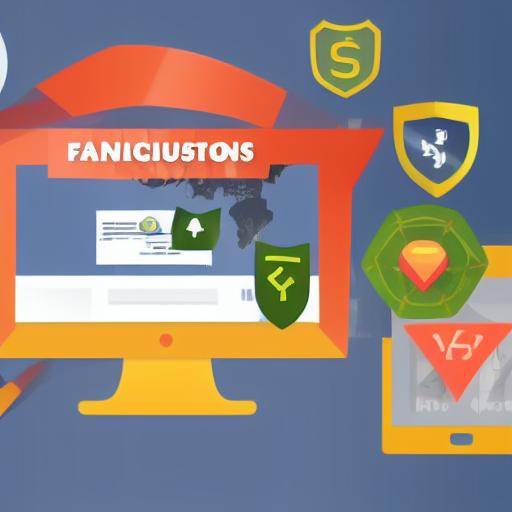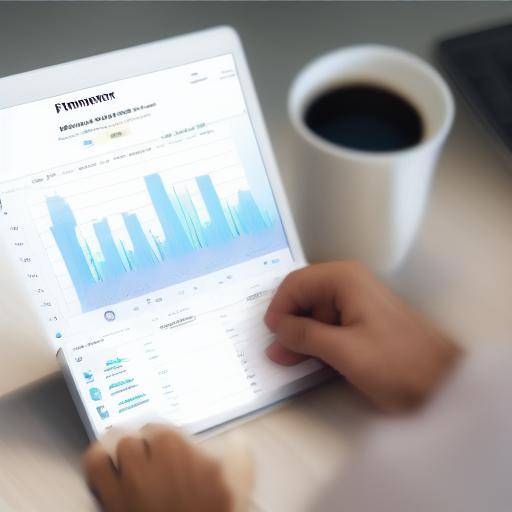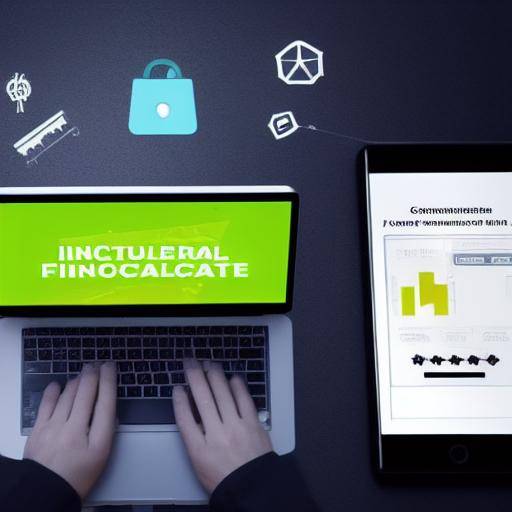
In the digital era, online shopping has become an integral part of our lives. However, along with the convenience of purchasing from the comfort of our home, concerns about the security of our transactions also arise. With the growth of e-commerce, online shopping fraud and scams have also increased. It is essential that as consumers we are informed and prepared to protect our personal and financial information. In this article, we will explore important tips to avoid online shopping scams and frauds.
Safety in Online Shopping
Safety in online purchases is of paramount importance to ensure a positive and smooth experience for consumers. Here are some tips to stay safe while shopping online.
1. Use Safe Websites
When shopping online, it is crucial to ensure that you are using secure websites. Look for the lock in the browser address bar and check that the URL starts with "https://" instead of "http://". This indicates that the connection between your device and the website is secure and encrypted.
2. Use Safe Passwords
By creating an account on an e-commerce site, be sure to use strong passwords that include a combination of letters, numbers and special characters. Avoid using the same password for multiple accounts and change your passwords regularly.
3. Verify the Authenticity of the Seller
Before making an online purchase, investigate the seller or store to verify its authenticity. Look for reviews, reviews and scores from other buyers to get an idea of the seller's reputation.
4. Avoid Unsolicited Attachments and Archives
Avoid clicking on links or downloading attachments of emails or unsolicited messages. These may be phishing attempts, where scammers attempt to obtain personal or financial information fraudulently.
Prevention of Scams in Online Shopping
In addition to focusing on security, it is crucial to be vigilant and actively prevent scams in online shopping. Here are some preventive measures that can help avoid being a victim of fraud.
1. Purchasing on Known and Confidential Sites
Prefer to shop online on known and reliable websites, especially those that are recommended by friends or family members. Having confidence in the reputation of a site can significantly reduce the risk of falling into scams.
2. Maintain Updated Security Software
Make sure you have installed and updated a good security software on your device, including anti-virus, anti-malware and firewall programs. These tools can help detect and block potential threats while browsing and shopping online.
3. Review Declarations and Transactions
It is important to regularly review your credit or debit card statements to identify and report any suspicious activity. Early detection of unauthorized transactions can help minimize damage in the event of fraud.
4. Know Your Rights as Consumer
Familiarize with laws and regulations that protect consumers in case of scams or frauds in online shopping. Being informed about your rights can be crucial in resolving disputes with sellers or e-commerce platforms.
Protection of Personal and Financial Information
Finally, the protection of your personal and financial information is essential to avoid scams and frauds in online shopping. Here are some measures to protect your privacy and financial security.
1. Limit the Information that Shares
When shopping online, avoid sharing unnecessary personal information with sellers or websites. Limit the amount of information you provide and avoid sharing confidential details unless absolutely necessary.
2. Use Insurance Payment Methods
It prefers to use secure payment methods, such as fraud-protected credit cards, instead of bank transfers or cash payments. Credit cards usually offer an additional layer of security and protection when shopping online.
3. Keep Your Updated Devices
Be sure to keep your device software updated, including the operating system, browsers and applications. Periodic updates can patch security vulnerabilities and protect your data against potential gaps.
4. Avoid Public Wi-Fi Networks for Sensible Transactions
Avoid financial transactions or share personal information on unsafe public Wi-Fi networks. These networks may be targets of cyber attacks, and data transmitted through them may be at risk of being intercepted by unauthorized third parties.
In short, security, prevention and protection are essential to avoid scams and fraud in online shopping. Being aware of the risks and taking proactive measures, consumers can enjoy the comfort of electronic commerce without compromising their security and privacy. Keeping informed, adopting good security practices and warning signs of potential fraud are critical steps to protect yourself while enjoying the benefits of the digital world.
Conclusion
In an increasingly digital world, online purchases offer unmatched convenience, but also involve potential risks. Security, prevention and protection are fundamental pillars to stay safe from scams and fraud while enjoying the comforts of electronic commerce. By following the best tips and practices, consumers can make online shopping in a safe and reliable way.
Frequently asked questions
How can I identify if a website is safe for shopping?
To verify the security of a website, search the lock in the browser address bar, as well as the URL that starts with "https://". You can also look for reviews and ratings from other users to get an idea of the site's reputation.
What should I do if I suspect I was a scam victim in an online purchase?
If you suspect you have been a victim of a scam, contact your bank or credit card provider immediately to report the unauthorized transaction. You can also contact the seller or e-commerce platform to inform them about the situation.
What precautions should I take when providing financial information during an online purchase?
By providing financial information during an online purchase, make sure you are in a safe environment and use reliable payment methods. Avoid sharing confidential details in unsafe emails or unverified links.
Is it safe to use credit cards for online shopping?
Credit cards offer an additional layer of protection and security when shopping online. Many cards have fraud protection programs that can help mitigate risks in case of unauthorized transactions.
How can I protect myself from phishing scams on online shopping?
To protect yourself from phishing, avoid clicking on links or downloading attachments of emails or unsolicited messages. Be skeptical of any request for unsolicited personal or financial information and verify the sender's legitimacy.
What is the importance of reviewing account statements after online shopping?
Regular review of account statements can help identify and report any suspicious activity or unauthorized transactions. Early detection of problems can be crucial in limiting damage to fraud.
With these tips and precautions, consumers can enjoy a safe and secure online shopping experience. Monitoring and continuing education on best security practices are critical to protecting against scams and fraud in a constantly evolving digital environment.






















































